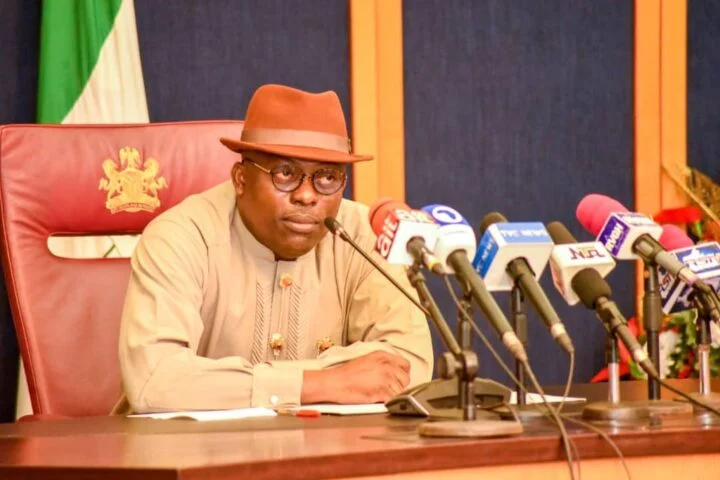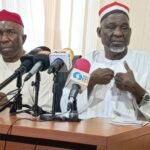By Emeka Woke
In a stunning display of political hypocrisy, Governor Sir Siminilayi Fubara has recently condemned the very tools of transparency and accountability—live coverage of project flag-offs and inaugurations—that his predecessor, Chief Barrister Nyesom Wike, embraced during his tenure. Just last year, Fubara appointed himself a steward of state resources, labeling such broadcasts as “a sheer waste” that incurs more cost than the projects themselves. Fast forward to less than a year into his own administration, and Fubara has reversed course, plastering his name across televised coverage of projects that barely meet the threshold for local council relevance.
This blatant about-face smacks of hypocrisy and highlights a deeper issue: Fubara’s inability to rise above pettiness and acknowledge the merits of good governance. Instead of fostering transparency, he seems intent on suppressing it, casting a shadow over the true spirit of accountability, negating his background claims as an Accountant.
Adding to the troubling governance style, Fubara appears to wield a narrow view of allegiance, deeming anyone who questions or opposes his political ideology an “enemy of the state.” At a recent commissioning ceremony for a school project in Ahoada, he displayed his leadership mediocrity by acknowledging that the project was awarded during Wike’s regime, yet he chose not to cancel the contract for those contractors he didn’t know personally. However, in a contradictory move, he swiftly terminated another road contract, declaring the contractor an enemy of the state simply for refusing to support his undermining of Wike.
Such behavior embodies a man who projects an image of victimhood—claiming to be the fly crushed by the sledgehammer—while, in reality, he wields the sledgehammer himself. This pattern of vindictiveness undermines not just the rule of law but also the very tenets of democracy that the people of Rivers State deserve.
Engr. Chukwuemeka Woke, Director General of the National Oil Spill Detection and Response Agency (NOSDRA), echoes this sentiment, emphasizing that Fubara’s refusal to embrace former allies showcases a dangerous inclination towards division rather than unity. Governance should be about collaboration and respect for past achievements, qualities sorely lacking in the current administration. For a man who rose to power on the mantra of “continuity and consolidation”, it is rather absurd for the same individual to seek to destroy the ladder that made him a leader today.
As Woke aptly puts it, “Leadership should elevate and unite, not divide and belittle.” It is crucial for Fubara to reflect on the legacies left by his predecessors and acknowledge that good governance is not merely about seeking out perceived enemies but also about recognizing the contributions of all who strive to build a better Rivers State.
If Fubara continues down this ignoble path, he risks alienating the very citizens he swore to serve, cementing his legacy as a politician more interested in settling scores than fostering progress. Now more than ever, the people of Rivers State need a leader ready to embrace their complexities and work collaboratively for a brighter future and not a leader with divisive tendencies even within his own very household.



